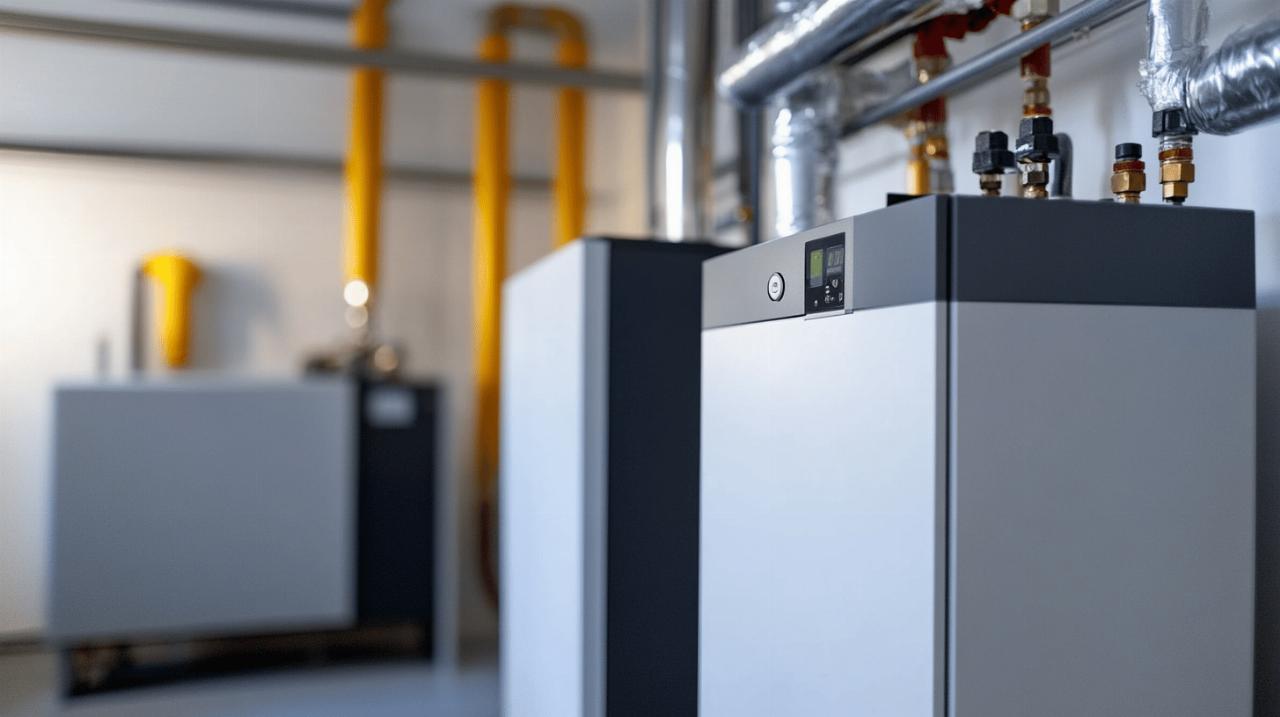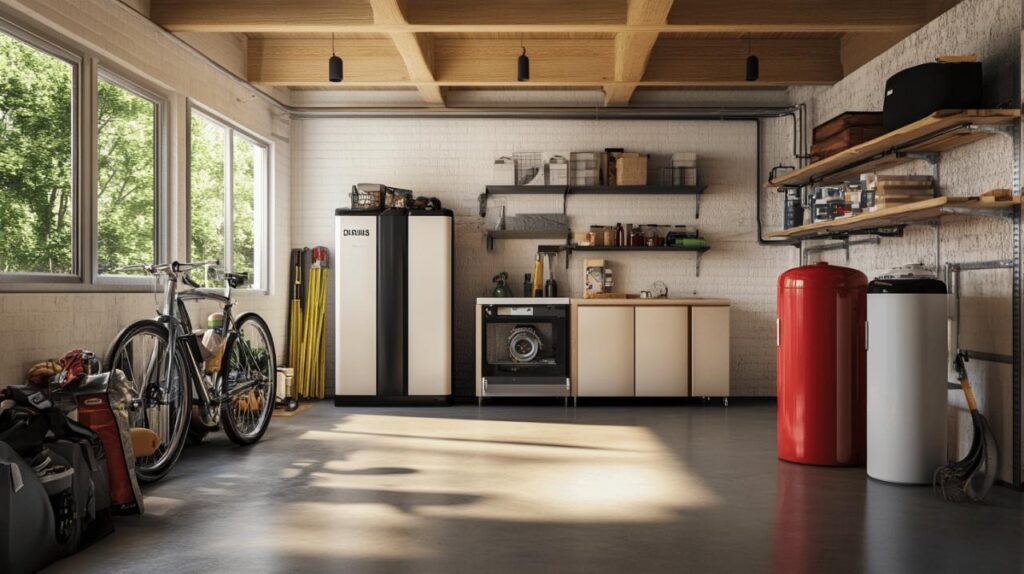Modern homeowners are increasingly focused on improving energy efficiency, and one of the most impactful upgrades for UK homes is the installation of a condensing boiler. These innovative heating systems have revolutionised the way we heat our homes, offering a remarkable combination of economic and environmental benefits that make them an excellent choice for any property owner looking to reduce their energy consumption while maintaining optimal comfort.
How condensing boilers maximise fuel efficiency
Condensing boilers represent a significant advancement in heating technology compared to their conventional counterparts. Unlike traditional models that allow valuable heat to escape through the flue system, condensing boilers incorporate sophisticated heat recovery systems that capture and utilise energy that would otherwise be wasted. This innovative approach, recommended by Kamerolli and other heating specialists across the UK, allows these systems to achieve remarkable efficiency ratings of over 90%, compared to the mere 65-78% efficiency typical of older non-condensing models.
Heat recovery technology in condensing systems
The exceptional performance of condensing boilers stems from their ability to extract additional heat from waste gases. When a conventional boiler operates, it releases hot gases through the flue that still contain significant thermal energy. Condensing boilers feature a secondary heat exchanger that cools these exhaust gases to the point where water vapour within them condenses, releasing latent heat that is then captured and reused to pre-heat cold water entering the system. This intelligent design dramatically reduces wasted energy and explains why condensing systems can achieve efficiency ratings approaching 99% in optimal conditions.
Comparing efficiency ratings between traditional and condensing models
The efficiency difference between traditional and condensing boilers becomes particularly apparent when examining energy usage patterns. With an older, inefficient boiler operating at around 55% efficiency, for every pound spent on heating, nearly half (45 pence) is effectively wasted. Non-condensing models typically waste approximately 30% of the heat they produce. In contrast, modern condensing boilers must have an energy-related product rating of at least 92% to meet current UK regulations, ensuring significantly less fuel is required to achieve the same heating output. This substantial improvement explains why condensing technology has been mandated for new installations in the UK since April 2005 for gas boilers and April 2007 for oil boilers.
Financial advantages for homeowners
The superior efficiency of condensing boilers translates directly into tangible financial benefits for homeowners. Heating and hot water typically account for over half of annual household energy expenditure in the UK, making this an area where improvements can yield significant savings. By upgrading from an outdated boiler to a modern condensing system, households can dramatically reduce their monthly utility bills while enjoying consistent warmth and reliable hot water.
Calculating potential savings on monthly energy bills
The financial impact of switching to a condensing boiler can be substantial. Homeowners replacing an old, inefficient model with a modern condensing system can save up to £310 per year on their gas bills. This reduction comes from the enhanced ability of condensing boilers to extract energy from fuel, meaning less gas or oil is consumed to achieve the same heating output. For homes with particularly outdated systems, the savings could be even more significant, with some households reporting reductions of up to 30% in their energy consumption after upgrading to a condensing boiler.
Return on Investment Timeline for Condensing Boiler Installation
While the upfront cost of installing a new condensing boiler represents a significant investment, the long-term financial benefits make a compelling case for the upgrade. A typical gas boiler replacement in Great Britain costs around £3,700, while oil boiler replacements in Northern Ireland average approximately £5,000. However, with annual savings of £300 or more, many homeowners can recoup their investment within 10-15 years, which aligns perfectly with the expected lifespan of a modern boiler. Additionally, government initiatives like the Boiler Upgrade Scheme offer grants of up to £5,000 to help offset installation costs, further improving the return on investment for energy-conscious homeowners.
Environmental Impact of Switching to Condensing Boilers
 Beyond the financial benefits, condensing boilers offer significant environmental advantages that make them an excellent choice for homeowners concerned about their carbon footprint. As climate awareness grows, the environmental performance of home heating systems has become an increasingly important consideration for property owners across the UK who wish to reduce their impact on the planet while complying with evolving building regulations.
Beyond the financial benefits, condensing boilers offer significant environmental advantages that make them an excellent choice for homeowners concerned about their carbon footprint. As climate awareness grows, the environmental performance of home heating systems has become an increasingly important consideration for property owners across the UK who wish to reduce their impact on the planet while complying with evolving building regulations.
Reduction in greenhouse gas emissions
The environmental benefits of condensing boilers are substantial when compared to their less efficient predecessors. By extracting more heat from the same amount of fuel, condensing systems naturally produce fewer greenhouse gas emissions. A typical household using a non-condensing boiler might generate approximately 7.95 tonnes of CO2 per year, while the same property with a condensing system would produce only about 5.2 tonnes annually. This represents a potential carbon reduction of approximately 1,200 kg per year for each home that makes the switch, making condensing boilers a meaningful contribution to addressing climate change at the individual household level.
Meeting modern building regulations and energy standards
Since 2005, UK regulations have mandated that new gas boiler installations must be condensing models with a high SEDBUK efficiency rating. These requirements reflect the government’s commitment to reducing national carbon emissions and improving energy efficiency across the housing stock. By installing a condensing boiler, homeowners ensure their heating system complies with current standards, potentially enhancing property value while supporting broader sustainability goals. Modern condensing systems are also increasingly designed to work effectively alongside renewable technologies such as solar thermal systems, creating a pathway for even greater environmental improvements in the future.
Installation considerations for uk homes
When upgrading to a condensing boiler, several practical factors must be considered to ensure the new system integrates effectively with your home. Proper installation is crucial for maximising both efficiency and performance, so understanding the spatial requirements and compatibility issues is essential before making a final decision on which type of condensing boiler best suits your property.
Space requirements and positioning options
Condensing boilers can be identified by their distinctive features, including a plastic flue and a condensate pipe leading to a drain. These systems are available in various configurations to suit different property types and space constraints. Combi boilers, which provide heating and hot water on demand without requiring a separate cylinder, are ideal for smaller homes but may struggle with multiple simultaneous hot water demands. System boilers incorporate a hot water storage cylinder, making them more suitable for larger households with higher hot water requirements. Heat-only boilers include additional cold water storage tanks and are particularly appropriate for properties with lower water pressure or multiple bathrooms, though they require more installation space.
Integration with existing heating systems
When installing a condensing boiler, compatibility with existing components should be carefully assessed. Modern condensing systems can typically work alongside various heating controls and enhancements, including thermostatic radiator valves, flue gas heat recovery units, and magnetic filters that protect against system debris. For optimal performance, well-insulated hot water cylinders should be incorporated where appropriate, potentially saving an additional £40-£45 annually through reduced heat loss. Homeowners should obtain at least three quotes from qualified installers who are TrustMark certified and Gas Safe registered for gas or LPG boiler installations to ensure proper integration with existing pipework and radiators while maintaining safety standards.

